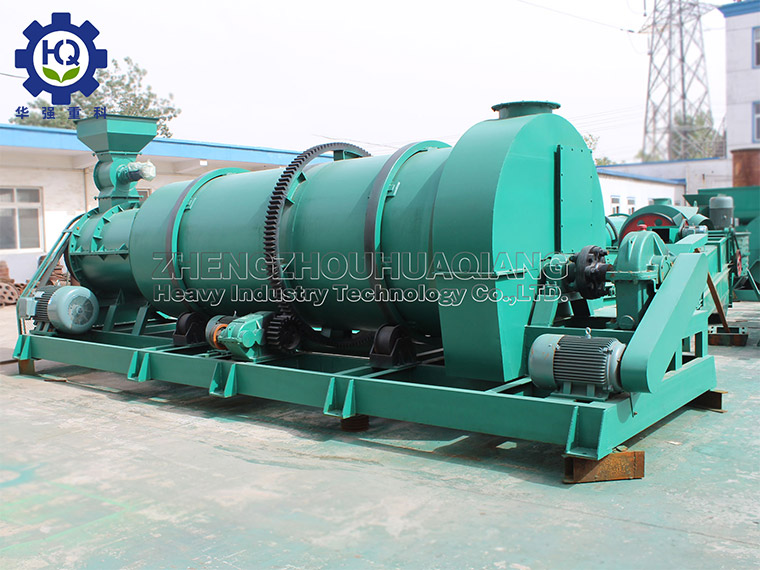The complete set of small-scale powdered organic fertilizer equipment is a fertilizer that can be decomposed by adding organic waste such as plant straw to chicken manure, pig manure, cow manure, sheep manure, horse manure, duck manure, rabbit manure, pigeon manure, and other livestock and poultry manure.
Small powder organic fertilizer complete equipment, available in powder and granular form, as well as cylindrical form. Powder form is simple, and powder organic fertilizer refers to the fertilizer produced by fermenting organic raw materials in a certain proportion without causing particles. There is a certain difference from traditional composting fermentation. The national standard is 40% organic matter, over 5% total nutrients, and 30% moisture. The equipment is also relatively simple, mainly consisting of three stages of fermentation: pre mixing, flipping, refining, and packaging. The main purpose of fermentation is to decompose large molecular materials of organic raw materials into small molecular materials that can be absorbed and utilized by crops through microbial decomposition. The quality of fermentation also affects the quality and effectiveness of organic fertilizers.
What are the components of a small, fully automatic set of bio organic fertilizer equipment? It mainly consists of fermentation system, drying system, deodorization and dust removal system, crushing system, ingredient system, mixing system, granulation system, and finished product packaging system; The fermentation system for harmless treatment of livestock and poultry manure includes: feed conveyor, biological deodorization machine, mixer, proprietary flipping machine, oxygen supply system, and automatic control system.
The working principle of the organic fertilizer wet stirring toothed granulator is to use the high-speed rotating mechanical stirring force and the resulting aerodynamic force to continuously mix fine powder materials in the machine, achieve granulation, spheroidization, extrusion, collision, compaction, polishing and other processes, and thus achieve the purpose of granulation. The particle shape is spherical, with a sphericity of ≥ 0.7 and a particle size generally between 0.3-3 millimeters. The particle formation rate is ≥ 90%. The size of the particle diameter can be adjusted appropriately by the material mixing amount and the spindle speed. Generally, the lower the mixing amount, the higher the speed, and the smaller the particle.